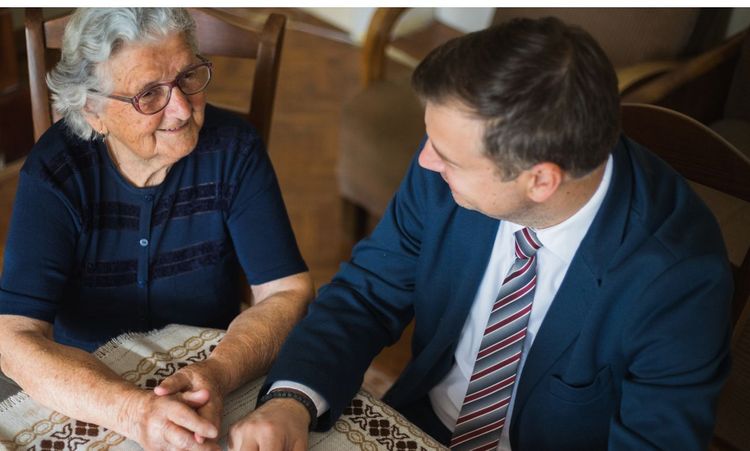What happens if you get charged with child neglect? It's a question that comes with weighty implications, and the answers are far from simple. Child neglect is a serious legal issue that can impact not only your life but also the lives of your children and loved ones. Understanding what happens if you get charged with child neglect is crucial to navigating this challenging experience and protecting your rights as a parent. Let's break down the details to give you a clear understanding of the road ahead.
Legal Definition of Child Neglect
Child neglect is defined as a caregiver's failure to provide necessary care, supervision, or protection for a minor child. This means that parents or guardians must fulfill certain responsibilities, like ensuring a child has adequate food, clothing, shelter, education, and medical care. When these responsibilities are not met, criminal charges may be filed, especially if the child's welfare is put at substantial risk. The legal landscape for child neglect varies depending on your jurisdiction, but the essence remains: failing to meet your duty of care can lead to severe legal consequences.
- Duty of Care: Every caregiver has a duty of care to ensure the well-being of their child. When this duty is breached, the child is left vulnerable and at risk of physical harm, emotional abuse, or even more severe harm.
- Failure to Act: Child neglect often involves omissions rather than direct actions. It's not always about what you do, but rather about what you fail to do that results in substantial risk to the child.
Child neglect charges encompass a broad range of conduct, including failing to provide medical treatment, adequate supervision, or even a suitable environment for a child. What happens if you get charged with child neglect depends largely on the nature of the neglect and the jurisdiction you're in.
Types of Child Neglect

Child neglect can come in various forms, each with unique legal implications. Understanding these categories helps you see the broad range of situations that can lead to charges for child neglect.
Physical Neglect
Physical neglect involves the failure to meet the physical needs of a child, such as food, clothing, and shelter. Examples include:
- Inadequate food, leading to malnutrition or physical harm
- Lack of appropriate clothing, putting the child at risk of bodily injury due to exposure to weather conditions
- Poor supervision that results in a minor child being placed in dangerous situations
Physical neglect is often considered the most obvious form of child neglect. Law enforcement is particularly vigilant about cases where the child is visibly malnourished, inadequately dressed, or living in uninhabitable conditions.
Educational Neglect
Educational neglect happens when a parent or guardian fails to provide for a child’s educational needs. This includes:
- Failing to enroll the child in school or preventing attendance
- Ignoring chronic truancy without valid reasons
- Preventing a child from receiving special education services they are entitled to
A child in school is a fundamental requirement for their development. Failing to fulfill this responsibility can result in charges that carry substantial penalties, including potential loss of custody.
Psychological Neglect
Psychological or emotional neglect involves failing to meet a child's emotional needs or exposing them to harmful environments. This may include:
- Ignoring a child's emotional distress
- Exposure to chronic domestic violence or excessive drug use
- Constantly belittling or verbally abusing the child
Psychological neglect can lead to emotional harm and psychological issues that follow a child throughout their life. Charges for child neglect of this type may involve multiple expert testimonies regarding the child’s mental state.
Medical Neglect
Medical neglect is a significant concern and involves failing to provide necessary medical care to a child. This can include:
- Not seeking medical treatment for severe injuries or illnesses
- Refusing emergency medical care for religious reasons
- Ignoring prescribed medical treatment or adequate dental care for serious conditions
Medical neglect charges are particularly serious because they involve a direct threat to the child’s health and well-being. Law enforcement and Child Protective Services are often quick to act if medical neglect is suspected, especially if there is evidence of bodily injury or a life-threatening situation.
Grounds for Child Neglect Charges
What happens if you get charged with child neglect often begins with a report from someone—a teacher, a doctor, or a neighbor—who suspects that a child is at risk. There are specific grounds on which child neglect charges are based, including:
- Failure to Provide Basic Needs: Food, clothing, and shelter are fundamental rights of any child. If these are not provided adequately, it can result in substantial risk and potential charges for child neglect.
- Endangering the Child's Health: If a child’s health is put at risk due to inadequate supervision or lack of medical care, it can result in criminal charges.
- Abandonment or Absentee Parenting: Leaving a child unsupervised for prolonged periods or failing to provide adequate supervision may lead to allegations of neglect.
The charges may be either misdemeanor or felony charges depending on the severity and duration of the neglect. Criminal charges can be filed if the neglect puts the child at substantial risk of harm.
Penalties for Child Neglect Charges

The penalties for child neglect can be severe, and what happens if you get charged with child neglect will depend on several factors, including whether it is classified as a misdemeanor or felony offense.
Immediate Consequences
- Arrest and Booking: If charged, the legal process usually begins with arrest and booking. Law enforcement will take custody of the accused until bail is set.
- Temporary Custody Changes: Child Protective Services may step in to remove the child from the home, especially if there is an immediate risk to their safety.
- Protective Services Involvement: Child Protective Services will often start an investigation. This may result in temporary foster care placement for the child.
- Bail and Legal Representation: During initial hearings, the court will set bail, and you will need to retain an experienced attorney to represent you.
Long-term Repercussions
- Criminal Conviction: A conviction can lead to a criminal history that affects every part of your life—from job prospects to your ability to rent housing.
- Loss of Parental Rights: Severe neglect charges can lead to losing custody or even termination of parental rights.
- Fines and Penalties: The court may impose hefty fines that can amount to thousands of dollars in addition to possible probation conditions.
- Social Stigma: There is also a significant social stigma associated with child neglect charges, which can impact your reputation and relationships.
- Probation or Prison: Depending on the severity, you may face probation sentences or even prison sentences that could range from a few months to several years.
The penalties for child neglect depend on whether the crime is categorized as a misdemeanor or felony. Convictions for child endangerment or neglect carry severe penalties, often resulting in felony probation or other severe punishments.
Legal Defenses Against Child Neglect Charges
Facing child neglect charges is daunting, but a skilled criminal defense attorney can help develop a strong defense to challenge these accusations. Here's how:
Common Defenses
- Reasonable Belief: A possible defense is that you had a reasonable belief that your actions or omissions were in the child's best interests. For instance, opting for prayer-based treatment instead of medical care, if done out of genuine conviction, might serve as an affirmative defense.
- Insufficient Evidence: The prosecution must prove beyond a reasonable doubt that neglect occurred. A strong defense strategy can focus on the lack of sufficient evidence, especially if the alleged neglect did not result in any physical or emotional harm to the child.
- Accident or Miscommunication: Sometimes, misunderstandings or accidents lead to these charges. Showing that an incident was accidental and not the result of neglect can be crucial in dismissing charges.
Burden of Proof for Conviction
For a conviction of child neglect, the prosecution must establish three key elements:
- Duty of Care: That you had a legal responsibility for the well-being of the minor child.
- Breach of Duty: You failed to fulfill that duty, whether through action or omission.
- Substantial Risk or Actual Harm: This breach of duty put the child at substantial risk or caused actual harm.
The burden of proof lies with the prosecution, and your criminal defense lawyer will aim to create a robust defense strategy that challenges each of these points.
Distinguishing Between Culpable Negligence and Regular Negligence
Understanding the difference between culpable negligence and regular negligence is vital when dealing with child neglect charges.
- Culpable Negligence: This occurs when neglect is severe enough to be considered reckless or with reckless disregard for the child's safety, such as refusing emergency medical treatment.
- Regular Negligence: This involves more minor lapses in caregiving duties, which may not necessarily lead to criminal charges but could still attract scrutiny from Child Protective Services.
The distinction matters because culpable negligence can lead to severe criminal penalties, while regular negligence might lead to civil consequences or interventions by child protective services without criminal charges.
The Legal Process After Being Charged
What happens if you get charged with child neglect will also involve navigating the legal process, which can be daunting and confusing. Here's a breakdown of what you can expect.
Initial Hearings
- Arraignment: This is your first court appearance, where you'll be formally charged and asked to enter a plea. It’s crucial to have legal representation during this stage.
- Bail Hearing: The judge will decide whether you can be released on bail or bond pending your trial.
Mediation and Negotiation
- Plea Deals: Your criminal defense attorney may negotiate plea bargains with the prosecution to lower the charges or reduce penalties.
- Counseling and Education: In some cases, the court may require you to attend parenting classes or participate in counseling programs as part of a plea deal.
Trial Process
- Evidence Presentation: Both the prosecution and defense present evidence, including testimonies from social workers, medical professionals, or others involved.
- Expert Witnesses: Expert testimony might be used to establish whether or not a child’s condition was a result of neglect.
- Verdict: A judge or jury will decide the outcome based on the evidence presented and the legal arguments made.
Importance of Legal Representation

Having an experienced criminal defense attorney is critical if you want to fight child neglect charges effectively. Here’s why legal representation is crucial:
- Expertise in Child Endangerment Laws: Child neglect and child endangerment laws can be highly complex, and an attorney can help you understand the charges and navigate the legal system.
- Building a Strong Defense: Your attorney will collect evidence, find witnesses, and create a defense strategy tailored to the specifics of your case.
- Negotiation Skills: An attorney can help negotiate plea deals or alternative sentencing options, potentially avoiding a conviction that could lead to jail time or other severe consequences.
Legal representation by an experienced criminal defense lawyer is your best bet for minimizing penalties or even dismissing the charges. Charges for child neglect can be life-altering, and navigating the legal process without proper counsel can make things worse.
Conclusion
What happens if you get charged with child neglect? It could mean anything from a misdemeanor conviction to a felony charge, depending on the circumstances. Understanding the various forms of child neglect, the legal grounds for these charges, and the potential penalties can help you prepare for what's ahead. Most importantly, securing skilled legal representation can make all the difference when it comes to protecting your rights and your family.




